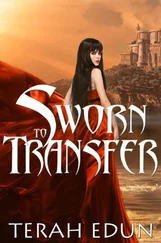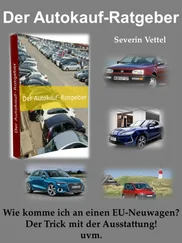'Why were you floating in the river?'
I licked my lips and tasted vinegar.
'They tried to kill me.'
The Serklander did not even bother to ask who had made the attempt. He knew.
'Then it was lucky that one of my Black Hoods spotted you.'
'You must get away,' I said urgently. 'The man who sold you the slaves, Ivarr, is dead. His comrades think you poisoned him. Now the Varangians are leaderless they are very dangerous and will try to catch up with you to get back the twin girls.'
'No more than I would expect of those savages,' he answered. 'We are already on our way downriver.'
I tried to sit up.
'My master asks you to lie still,' said the interpreter. 'You will disturb the dressing.'
I turned my head and saw that my left shoulder was bandaged. Again I smelled vinegar and wondered why.
Ibn Hauk answered before I had time to enquire.
'The vinegar is against the pestilence,' he said. 'It is to cleanse you from the sickness that killed Ivarr. Rest now. We will not be stopping, but will travel through the darkness. I do not think that your Rus will catch up with us. And if they do the Black Hoods will deal with them.'
I relaxed and thought about this turn of events. Everything I owned — my precious furs, my clothes, even the knife that Thrand had given me and which I treasured — was lost irretrievably. They were in the hands of the Varangians, who would already have divided the spoils amongst themselves. I was glad that I had given away the fire ruby to Allba. I was destitute and now I did not even have clothes to wear. Under the loose cotton sheet which covered me I was naked.
Ibn Hauk personally attended to me as we sailed downriver. He carried a stock of healing drugs from his own country and prepared the poultices of herbs and spices which were applied to my knife wounds. Certainly he was very skilled in their use, for eventually the wounds closed up so cleanly that they left barely the faintest scars. Each time he came to change the dressings he took the chance to question me about the customs of the Varangians and the countries where I had travelled. He had never heard of Iceland or Greenland, and of course he knew nothing of Vinland. But he had heard of King Knut of England and had some vague information about the northern lands.
When I told him how Ivarr's corpse had been burned, he was shocked. 'That is utter barbarism,' he said. 'No wonder the pestilence spreads among those river pirates. My religion demands that we wash before our prayers, but I observed that your former travelling companions are more filthy in their habits than donkeys.'
'Not all are so uncouth,' I said. 'There are men who know the use of herbs and simples just as you do, and the true Varangians, the men who come from the northern lands, are strict about their personal cleanliness. They bathe regularly, keep their hair and fingernails clean and take a pride in their appearance. I know because I have had to wield the heavy stones they use to press their clothes.'
'But burning a corpse to ashes,' ibn Hauk observed, 'that is abominable.'
'In your country what do they do?' I asked.
'We bury our dead,' he answered. 'Often the grave must be shallow because the soil is rocky, but we put the dead into the ground as quickly as possible before putrefaction sets in. Our climate is very hot.'
'That is what the Christians also do - bury the dead,' I said, and found myself repeating what Thrand had said long ago. 'You see, for those who follow the Old Ways that is an insult to the deceased. We - for I am an Old Believer - find it repugnant to let a man's corpse decompose or be eaten by worms. We prefer that it is destroyed neatly and cleanly, so that the soul rises to Valholl.'
Then, of course I had to explain what I meant by Valholl, while ibn Hauk busily made notes. 'Your Valholl sounds very much like the valley that some of our believers, a strange sect, think they will achieve if they die in battle sacrificing their lives for their leader.'
He was so amiable and outgoing that I took the chance to ask him if he had ever seen precious stones that were the colour of pigeon's blood and had a burning fire within them.
He recognised the description instantly.
'Of course. We call them laal. My master owns several — they are among the pride of his royal jewels. The best ones he received as gifts from other great potentates.'
'Do you know where they come from?'
'That's not an easy question to answer. The gem dealers refer to these jewels as badakshi, and this may have something to do with the name of the country where they are found,' he said. 'It is said that the mines lie in high mountains, close to the borders of the country we call al-Hind. Their precise location is kept a secret, but there are rumours. It is reported that the rubies are found encased in lumps of white rock, which are broken open with great care by the miners, using chisels, to reveal the jewel within. If they find a small jewel of poor quality, they call it a foot soldier. A better jewel is known as a horse soldier, and so on up through an amir jewel, a vizier jewel, until the very best - the emperor jewel - which is reserved for royalty.'
In such intelligent and informative company the journey south passed rapidly, and it was with genuine regret that I heard ibn Hauk announce one afternoon that our paths were about to separate.
'Tomorrow we reach the outer frontiers of Rumiyah,' he said. 'I expect we will meet with a border patrol. The great river curves away to the east and the way to Rumiyah, where you want to go, is south and west. You have to cross from this river to another, which takes you to a port from where you take ship and finally, after a passage of two or three weeks, you will arrive at its capital, Constantinople, or Miklagard as you call it.'
I must have looked dejected because he added, 'Don't worry. One traveller should always help another and my religion tells me that acts of charity will be rewarded. I promise that I will see to it that you reach your Miklagard.'
Only when the commander of the frontier guard came to interview ibn Hauk did I fully appreciate how influential was my modest travelling companion. The commander was a Pecheneg mercenary, hired with his troop of tribal cavalry to patrol the buffer zone between the empire and the wilder region to the north. The Pecheneg was either arrogant or looking for a bribe. He spoke to ibn Hauk rudely, demanding proof of his claim that he was an ambassador. Quietly ibn Hauk produced a small metal tablet. It was about the length of my hand and three fingers broad. There were lines of Greek script engraved on it, though I doubted that the Pecheneg could read them. However, the soldier had no need of literacy. The tablet was solid gold. He blenched when he saw it and became very obsequious. Was there anything the ambassador wanted? He asked. He would be happy to oblige.
'Allow myself and my retinue to continue downriver,' answered the Arab gently, 'and provide an escort, if you would be so kind, for this young man. He is carrying a message to his majesty the emperor.'
I had the presence of mind not to gape with astonishment.
The moment the Pecheneg had left the tent, I asked, 'Your excellency, what was meant about a message for Constantinople?'
'Oh, that.' Ibn Hauk waved his hand dismissively. 'It will do no harm if I send the compliments of the caliph to the emperor of Rumiyah. Indeed it would be much appreciated. The imperial court positively relishes the niceties of diplomacy, and the protocol department might take it as an insult if they heard that I had visited a corner of imperial territory without sending a few flattering words to the great emperor of the Romans, for that is how he styles himself. You can carry the note for me. In fact you can help write it out in Greek letters.'
Читать дальше








